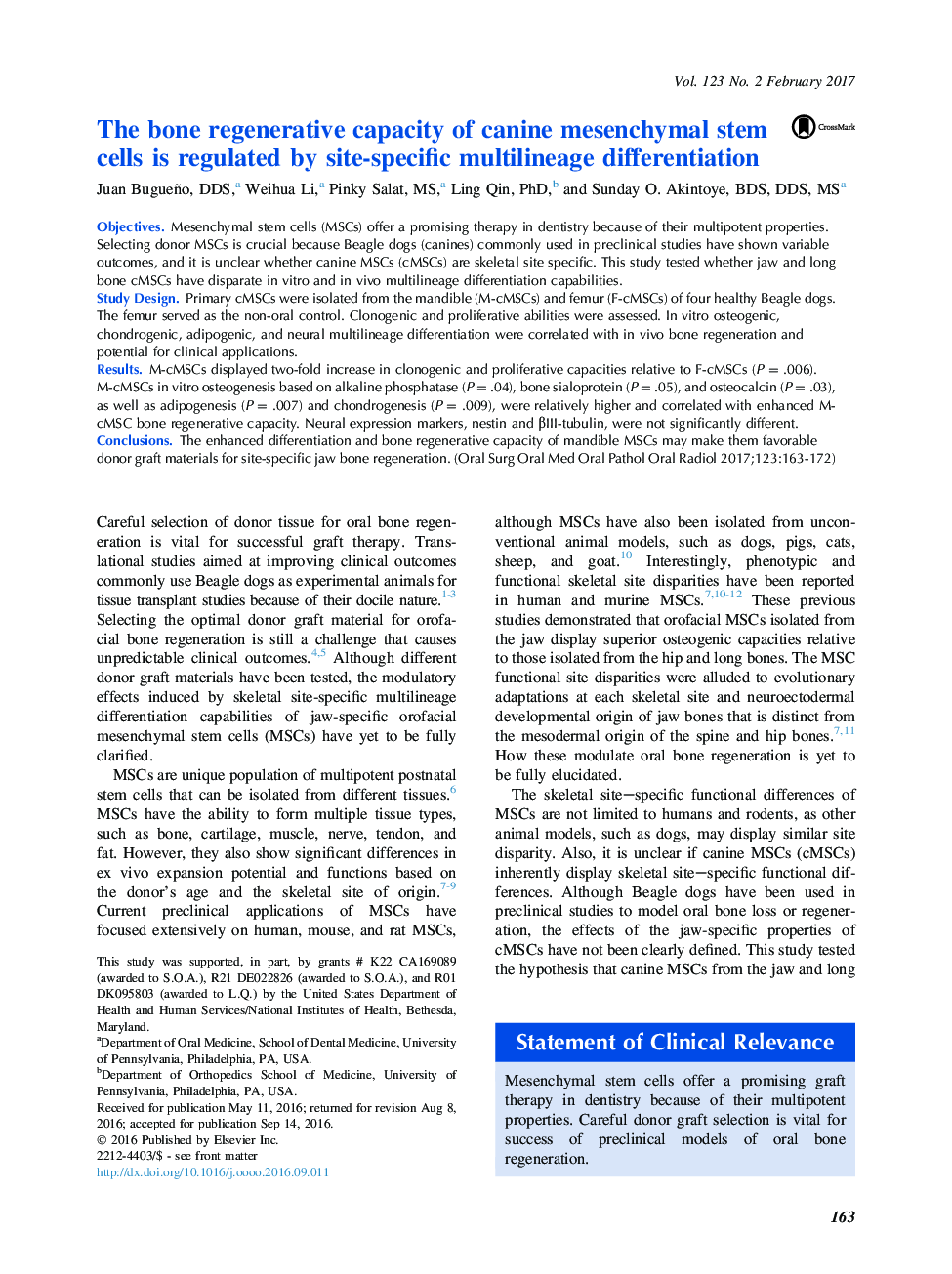| Article ID | Journal | Published Year | Pages | File Type |
|---|---|---|---|---|
| 5643210 | Oral Surgery, Oral Medicine, Oral Pathology and Oral Radiology | 2017 | 10 Pages |
ObjectivesMesenchymal stem cells (MSCs) offer a promising therapy in dentistry because of their multipotent properties. Selecting donor MSCs is crucial because Beagle dogs (canines) commonly used in preclinical studies have shown variable outcomes, and it is unclear whether canine MSCs (cMSCs) are skeletal site specific. This study tested whether jaw and long bone cMSCs have disparate in vitro and in vivo multilineage differentiation capabilities.Study DesignPrimary cMSCs were isolated from the mandible (M-cMSCs) and femur (F-cMSCs) of four healthy Beagle dogs. The femur served as the non-oral control. Clonogenic and proliferative abilities were assessed. In vitro osteogenic, chondrogenic, adipogenic, and neural multilineage differentiation were correlated with in vivo bone regeneration and potential for clinical applications.ResultsM-cMSCs displayed two-fold increase in clonogenic and proliferative capacities relative to F-cMSCs (P = .006). M-cMSCs in vitro osteogenesis based on alkaline phosphatase (P = .04), bone sialoprotein (P = .05), and osteocalcin (P = .03), as well as adipogenesis (P = .007) and chondrogenesis (P = .009), were relatively higher and correlated with enhanced M-cMSC bone regenerative capacity. Neural expression markers, nestin and βIII-tubulin, were not significantly different.ConclusionsThe enhanced differentiation and bone regenerative capacity of mandible MSCs may make them favorable donor graft materials for site-specific jaw bone regeneration.
